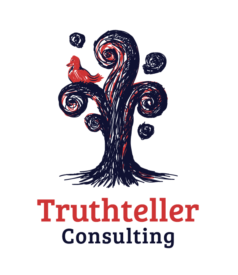2.18.22
Yesterday was exciting! The Health Improvement Collaborative of Southeastern Connecticut adopted a document that explains what it’s about and how it works. I know, I know – big whoop. But really this required so much deep thinking at time when deep thinking is elusive. We are entering into the third year of the pandemic and for many of us thinking about the future is hard and at times, painful – so enthusiastically adopting a document with an eye towards sustainability and growth feels like a radical act.

The original idea was for this collaborative to have bylaws that support community centered governance. I just want to say that bylaws are not about purpose or promise they are about rules. Most of the bylaws I reviewed were cut and pasted from other bylaws available online. They were not inspiring and they were not easy to understand.
For me, as a consultant on this project, I wanted the Coordinating Team (leaders of the collaborative) to think about, not only the big picture but also how we would handle problems. How could we address power differentials? How could we be transparent? This required the group to consider processes and future decisions that they had not articulated before.
I suggested to the group that we don’t need a legal document as we are not a legal entity. We do need to articulate our purpose, norms, how we make decisions, and how we would handle needs, how we would be accountable. I woke up at 3AM a few days after this conversation and drafted 46 questions that we needed to answer in order for us to function in an inclusive and consistent way. I’m not a morning person so this predawn blast of creativity and purpose was really something!
Over a few months we answered these questions. The team met in the morning. We met at night. Folks were committed. Some of the questions were hard and pointed out differences of opinion and understanding that we had not known existed. These questions and their answers helped us create a document that spoke to both the head and the heart.
The Coordinating Team shared versions of what became the Purpose and Processes Document (rolls off the tongue!!) with the full collaborative over a period of 5 months or so. We spent our whole December meeting discussing the document in small groups and many edits and suggestions were gathered. The Coordinating Team discussed the full list of ideas and most of these edits and suggestions were implemented. We had clear reasons for the edits that we did not implement. And we shared our thinking with the full collaborative.
Yesterday, I led the group in a consensus based decision-making process and the the document was enthusiastically adopted!
You can find the questions and the completed document below.
Governance Questions
The questions below were drafted to support the Health Improvement Collaborative of SE Connecticut’s work to determine and document a governance structure. Some of the answers will be known while others will require discussion. This list of questions is not exhaustive and this document can be modified as the Coordinating Team and the HIC’s thinking about governance progresses
General Purpose and Functions:
- What is the purpose of the HIC?
- What are the essential functions of the HIC?
- If staff/members change how will the purpose and essential functions of the HIC be known and continued?
- What makes an effort or project a “HIC work”?
- What are the essential organizational relationships that must be maintained for the HIC to function as required? Why are these relationships essential?
- If staff changes take place, what documentation exists to maintain organizational commitments?
Decision-making and culture:
- Who decides what the HIC works on? How do they decide?
- Is a specific decision-making process utilized?
- Does decision making happen differently in different settings?
- Are some decisions only made in certain settings?
- Are decisions documented and accessible to members? To other stakeholders?
- Are stakeholders, who are not HIC members, included in decision-making? How? When?
- What rights or assurances can a HIC member, or guest, expect in HIC convening or communications (ie. emotional safety, respect, privacy)?
- How are these rights and assurances communicated to HIC members and guests?
- How are violations of these rights or assurances handled?
- What can a HIC member reasonably expect related to work and decisions made in the name of the HIC? How does a HIC member know what is happening?
- How are disagreements between HIC members handled?
- How is information about HIC business or priority topics shared?
- Who can share information with the entire HIC membership?
Membership:
- How does a person or a group become a HIC member?
- How does a person or group leave the HIC?
- What are the expectations of HIC members?
- Can a person or group be forced to leave the HIC? What would be the cause? How would this be done?
- Can a person or group be compelled to join the HIC?
- How can a HIC member voice concerns or grievances about the HIC group and/or HIC work?
- Who responds to concerns? Under what authority do they respond to concerns?
Note: See the Finance section for questions about member dues
Leadership and Transparency:
- Who makes the day to day decisions to move work forward?
- Under what authority does that person make decisions for the HIC?
- Are the people who make decisions accountable to anyone? How are the people who make decisions held accountable to the HIC? To the community?
- How does someone start or stop making decisions for the HIC?
- Does the HIC have formal leaders?
- How are formal HIC leaders chosen?
- How long do formal leaders serve the HIC?
- What are their duties?
- How do they inform HIC members of progress or challenges?
- What is the term for a formal HIC leader? Are there term limits?
- Can HIC members end a formal leader’s term early?
- How do new HIC members know who the formal leaders are?
Finance:
- Does the HIC have a budget?
- What organization(s) holds funds to support HIC work?
- How does that organization assure that funds are spent as intended?
- Are there rules about how HIC funds are spent or how they cannot be spent?
- Do member organizations pay dues? Do all members pay the same amount? Why or Why not?
- How are dues determined? How frequently can dues be changed?
Checking ourselves:
- Who should review and add or change these questions?
- Who decides the answers to these questions?
- Who should decide the answers to these questions?
